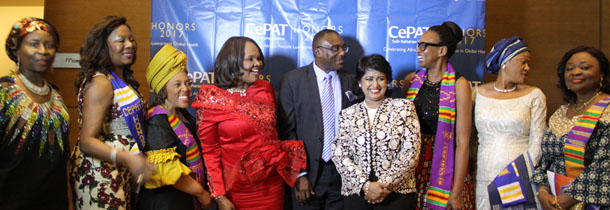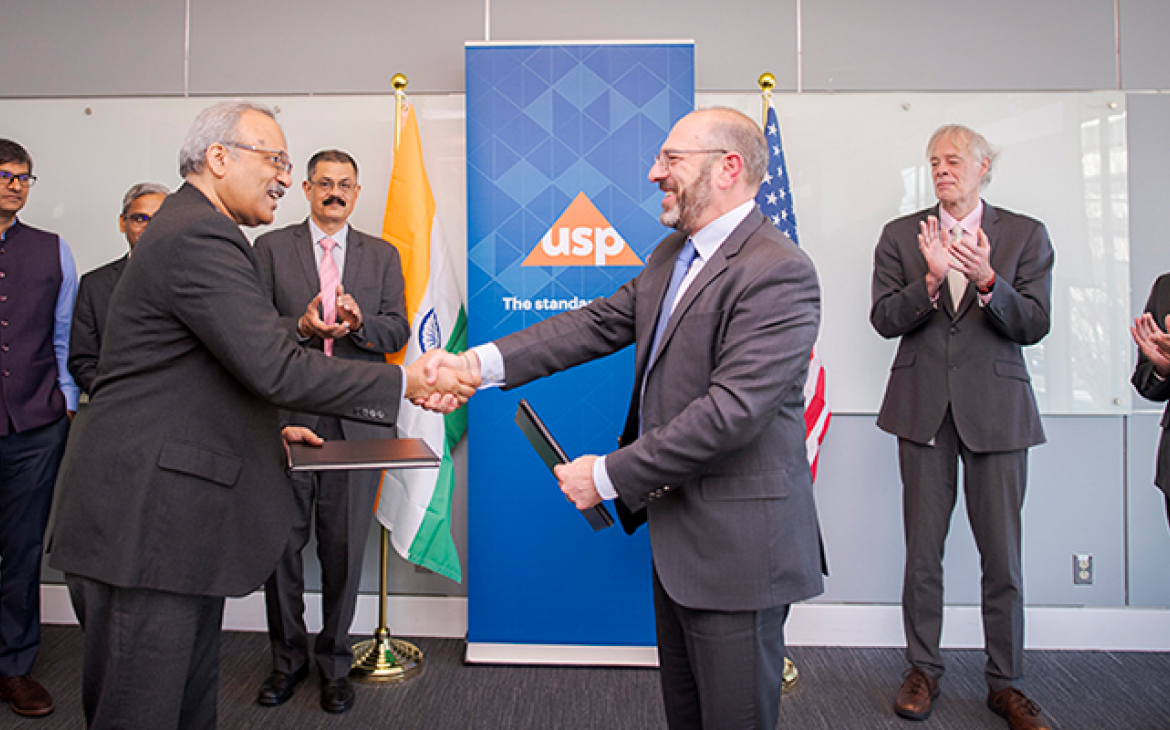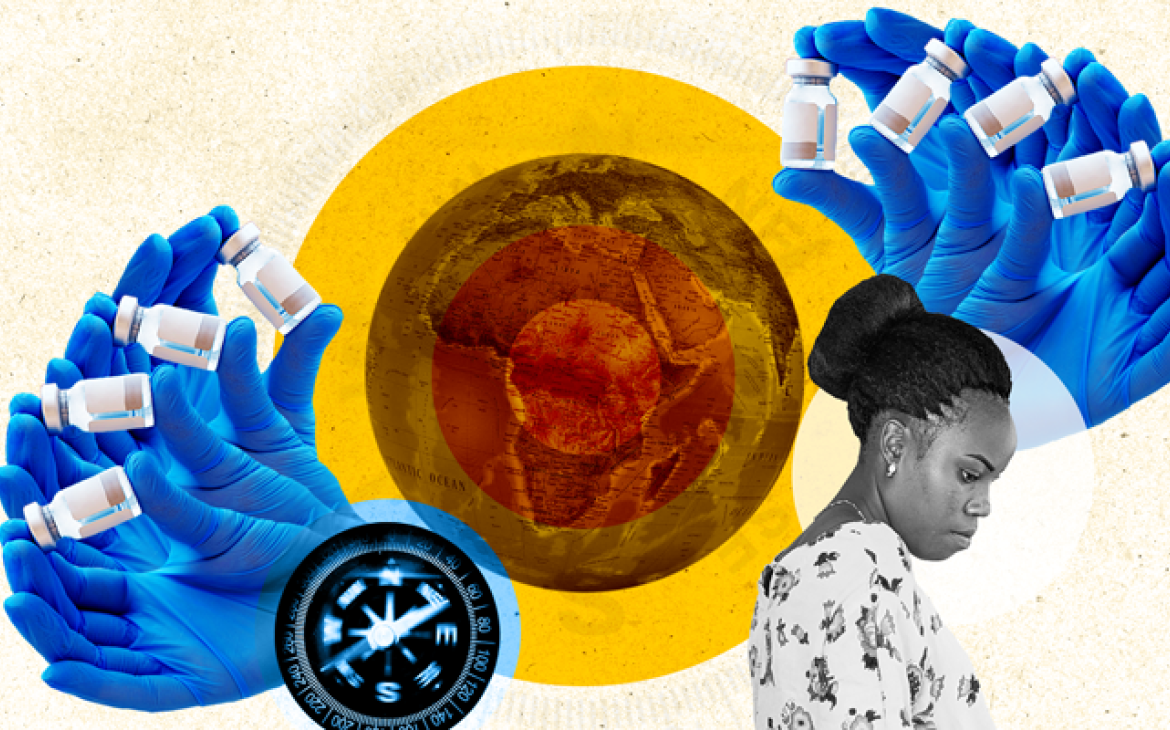
Although women comprise a majority of the global health workforce, it can be argued that they are under-represented at the decision-making level of global policy and governance. As is true around the world, women in Africa have distinct insights, approaches and leadership skills that can help transform the landscape for health and science. Yet, as is also true in other regions, few young women pursue degrees in science, and those who are interested often drift away from this area as a field of study and an eventual career.
This workforce pipeline challenge was a focus of recent remarks by the President of Mauritius, Her Excellency Ameenah Gurib-Fakim, 2017 Lifetime Achievement Honoree at the CePAT Honors event hosted by USP’s Center for Pharmaceutical Advancement and Training (CePAT) in Ghana. USP created CePAT Honors to celebrate African women leaders in regulatory affairs who have championed public health, by telling their stories and highlighting their achievements.
“We are talking always of the ‘leaky pipe’ syndrome for women who are being lost along the line. We need to have more and more of these women coming into the system,” said President Gurib-Fakim.
A renowned scientist and co-author of Africa’s first herbal pharmacopeia (a compendium of herbal medicines), President Gurib-Fakim recounted a time when she told her school counselor about her desire to study biology, to which the counselor replied, “There is no room for women in science.” Had she listened to her counselor, she might never have started her science career. With her own conviction and her father’s encouragement, Ms. Gurib-Fakim persevered to follow her passion to study science. So more than most, she understands the value of strong role models and mentors.
Among the 2017 CePAT Honors guests was the 2014 Lifetime Achievement Award recipient, Dr. Stella Chinyelu Okoli, M.D., founder and CEO of Emzor Pharmaceutical Industries Limited, Nigeria. Dr. Okoli is an accomplished pharmacist and philanthropist who has made immense contributions to Nigeria and the world.
In addition to the 2017 Lifetime Achievement Award, USP presented three 2017 CePAT Honors A.C.E. (Acknowledge. Celebrate. Empower) awards:
- Ms. Gugu Nolwandle Mahlangu, director-general, Medicines Control Authority of Zimbabwe (MCAZ), has helped shape MCAZ into one of Africa’s success stories by expanding and improving the services it offers. She helped achieve the International ISO accreditation of the MCAZ chemistry laboratory, which has allowed MCAZ to provide testing services and regulator training to other African countries. She is a vocal advocate for regulation of Zimbabwe’s pharmacy profession.
- Ms. Malebona Precious Matsoso, director-general, National Department of Health, South Africa, is one of South Africa’s most passionate advocates for ensuring access to quality medicines. Under her leadership, South Africa runs the world’s largest anti-retroviral drugs program, which has been hailed as a model for global HIV treatment. Citing Nelson Mandela as inspiration, Ms. Matoso said, “The long walk to freedom will be the long road to access.”
- Ms. Clavenda Parker became Liberia’s first female pharmacist in the 1960s and served as deputy chief pharmacist in Liberia’s National Public Health Service. She founded Clave’s Pharmaceutical, Inc., which became Liberia’s largest pharmaceutical wholesaler. She went on to chair the Liberia Medicines and Health Products Regulatory Authority, where she fought against substandard and counterfeit drugs.
As a prelude to the CePAT Honors ceremony, all of the 2017 honorees met with students participating in a USP mentorship program, CePAT Women in Science Exchange (WISE). CePAT works to strengthen the core competencies of national pharmaceutical regulatory authorities and pharmaceutical manufacturers to facilitate access to quality-assured medicines in Sub-Saharan Africa. As a result, the CePAT WISE program works to build capacity by fostering the next generation of women leaders in regulatory science. Through these two programs, USP is working to highlight women’s leadership in these areas and to address the “leaky pipe” President Gurib-Fakim described by cultivating the next generation of African women in health, medical and regulatory science.
President Gurib-Fakim cited the teenage years as critical to helping keep girls in Africa on track for science careers: “We are talking about young girls, age 15 to 17. It is here that the difference is made, because for many reasons on the continent, women and girls are not being encouraged to be in the sciences.”
She called for more mentoring programs like CePAT WISE, saying, “We really need to take these girls by the hand, to help them realize they can do anything. If we build their confidence—tell them from a young age that the sky’s the limit—we will see more girls in the sciences.”
“Advancing the quality of medicines globally helps to improve health globally, and in Africa, women like USP’s CePAT Honors awardees have been powerful champions of this cause,” said Ron Piervincenzi, Ph.D., CEO of USP. “By honoring these women, we help others recognize their contributions toward better health in Africa and, by connecting them with younger women, we help cultivate the next generation of African women leaders in health and science.”
“The health-seeking behavior on our continent is influenced mainly by women,” said Patrick Lukulay, Ph.D., vice president of Global Health Impact Programs for USP, also speaking at the event. “Women have a very central role in bringing about cures and effective medical practices. You cannot leave them out and expect to have an impact on public and global health.”
Lukulay added, “We’ve come to realize it is not enough to focus on in-service training—how much better if we go to the university or high school (preservice) to start teaching the necessary principles, so by the time they graduate, they are well prepared for careers in science.”
To learn how you can partner with USP in promoting women and girls in science, visit our CePAT webpage.


